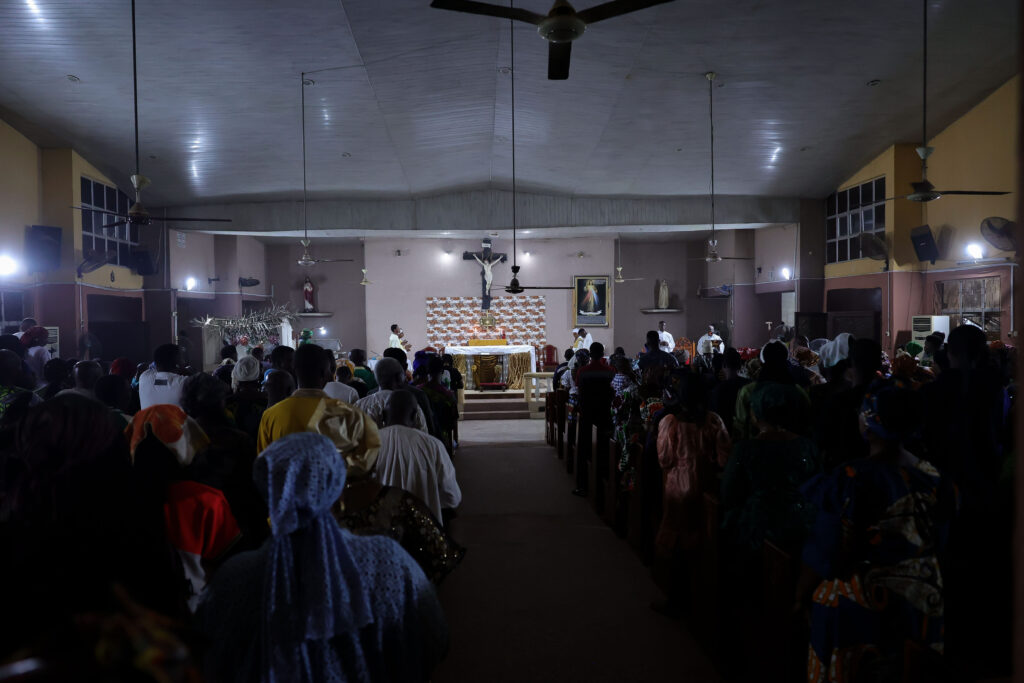First pressuring South Africa, and now threatening Nigeria, President Donald Trump is letting US domestic politics steer his policy on Africa — boding ill for foreign governments hit with his fury.Trump last week said he would put Nigeria on a blacklist on religious freedom over treatment of Christians — a long-running demand of evangelicals who are one of his most loyal bases — but took a stunning turn by also threatening military action against Africa’s most populous nation.Trump’s sudden intervention comes despite otherwise showing limited interest in sub-Saharan Africa, which in his first term he was the first president in recent times not to visit.Trump has highlighted US diplomacy in securing a fragile peace agreement between Rwanda and the Democratic Republic of Congo, but largely in the context of boasting that he deserves a Nobel Peace Prize and of the United States securing mineral wealth.Nigeria has witnessed years of deadly clashes between mostly Christian farmers and Fulani Muslim herders.The violence centers on clashes over dwindling resources, although on the surface it falls along ethnic and religious lines.”It is incredibly irresponsible of President Trump to threaten military action,” said Representatives Gregory Meeks and Sara Jacobs, the top Democrats on the House Foreign Affairs Committee and its Africa subcommittee respectively.”Providing security support is one thing; threatening military intervention to ‘defend Christians’ is a reckless response to distorted facts which risks embroiling the United States in another war,” they said in a joint statement.Republicans who champion the evangelical movement applauded Trump’s designation of Nigeria as a “country of particular concern” on religious freedom, which can carry sanctions, although they steered clear of cheering on military intervention.The blacklisting is a “critical step in holding accountable and changing the behavior of Nigerian officials who have facilitated and created an environment conducive to the outrages in Nigeria,” Senator Ted Cruz said.- Evangelical narrative as ‘Gospel’ -Pauline Bax, an Africa expert at the International Crisis Group, which supports conflict resolution, said that pressure groups had been key in channeling information on Africa to the Trump administration, which has sidelined traditional diplomats.”In the US, there’s a surge of what you could call Christian nationalism, partly fueled by the Trump administration. So I think conflict in Africa risks being sometimes framed in that light,” she said.Cameron Hunter, a former Africa director on the National Security Council, said that Trump’s base has invested in the narrative of Christians as persecuted, both at home and abroad.”They’re applying a kind of parochial worldview to, in this case, Nigeria. But it could be Iraq tomorrow, or the Philippines, or any other country. It just so happens that they spun the wheel and it landed on Nigeria,” he said.”The problem is that this presidency isn’t questioning the analysis of the Christian Right. They’re literally taking their assessment of this conflict for Gospel.”Following South Africa’s Cyril Ramaphosa, Nigerian President Bola Tinubu requested a meeting with Trump to clear the air.The White House visit went disastrously for Ramaphosa, who was played footage by Trump who alleged a “genocide” against the white minority by the post-apartheid government, a narrative promoted online by white nationalists.Hudson said meeting Trump would be the “absolute wrong move” for Tinubu, seeing that the US leader has shown he is not willing to accept explanations from others.Instead, Hudson said Nigeria could leverage Trump’s anger by asking for more security assistance to help fight Boko Haram militants.The United States is inching toward sending attack helicopters approved for Nigeria in 2022. The Trump administration in August approved another $346 million arms sale to Nigeria.Nigeria has “a very real interest in combating Boko Haram and extremist threats in the country,” Hudson said.”If the Nigerians were smart, they would look for ways to use these threats and turn them into a cooperative arrangement that actually helps them.”
